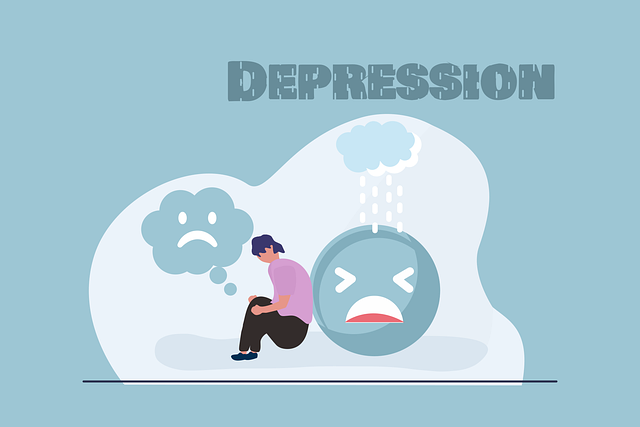Mental health professionals in Colorado Springs Self-Esteem Therapy face significant risks like burnout and vicarious trauma due to their work with trauma, depression, and anxiety. Organizations are addressing this by offering specialized training and Stress Management Workshops to enhance therapists' communication skills and stress management techniques. Robust risk assessments identify vulnerabilities, inform crisis interventions, and support tailored treatment plans for clients facing mental health challenges. Burnout prevention strategies, compassion cultivation, self-care practices, and structured risk management approaches ensure therapists maintain resilience and provide high-quality care in this demanding field.
Mental health professionals play a vital role in enhancing well-being, yet they often face unique risks that can impact their own mental health. This article explores the critical need for risk assessment within therapy settings, particularly focusing on Colorado Springs self-esteem therapy practices. We delve into understanding specific risks, implementing effective management strategies, and creating safe environments to support both clients and therapists. By addressing these aspects, professionals can enhance their resilience and deliver optimal care in the competitive field of Colorado Springs self-esteem therapy.
- Understanding the Unique Risks Faced by Mental Health Professionals
- The Importance of Risk Assessment in Therapy Settings
- Common Risks in Colorado Springs Self-Esteem Therapy Practices
- Strategies for Effective Risk Management
- Building a Safe and Supportive Environment for Clients
Understanding the Unique Risks Faced by Mental Health Professionals

Mental health professionals in Colorado Springs Self-Esteem Therapy and similar settings often find themselves navigating a unique set of risks that can impact their well-being. Unlike other professions, they bear the weight of others’ emotional burdens daily, which can lead to burnout prevention challenges. This constant exposure to trauma, depression, and anxiety can take a significant toll on mental health professionals’ resilience over time.
The demanding nature of the work requires not only exceptional communication skills but also a deep understanding of stress management techniques. Without proper coping mechanisms and self-care strategies in place, these professionals risk experiencing elevated levels of stress, which can hinder their own mental health and ultimately affect their ability to provide effective care. Organizations dedicated to Mental Health Awareness are increasingly recognizing the need for comprehensive training programs and Stress Management Workshops to equip these individuals with the tools they need to thrive.
The Importance of Risk Assessment in Therapy Settings

In the dynamic field of therapy, risk assessment is a cornerstone for ensuring safe and effective treatment environments, particularly in settings like Colorado Springs Self-Esteem Therapy. It involves meticulous evaluation and planning to identify potential risks and vulnerabilities among clients, allowing professionals to deliver tailored interventions. By implementing robust risk assessment protocols, therapists can proactively manage crises, mitigate harm, and foster resilience building among individuals grappling with various mental health challenges.
This process is pivotal in addressing not only immediate dangers but also long-term considerations, such as Mental Illness Stigma Reduction Efforts. Effective risk assessments guide crisis intervention strategies, ensuring professionals are prepared to handle a range of scenarios. Moreover, they contribute to the development of comprehensive treatment plans, which can include specialized techniques like those focused on resilience building. Such proactive measures not only enhance client outcomes but also create a supportive atmosphere where individuals feel empowered to navigate their mental health journeys with confidence and reduced stigma.
Common Risks in Colorado Springs Self-Esteem Therapy Practices

In the realm of Colorado Springs Self-Esteem Therapy, professionals navigate a complex landscape where helping others elevate their self-esteem can inadvertently expose them to unique risks. The demanding nature of this practice, often characterized by intensive and intimate sessions with clients, increases the vulnerability of therapists. They may experience vicarious trauma, especially when assisting individuals struggling with severe self-esteem issues or past traumas. Burnout is a significant concern, as the constant emotional investment required can lead to professional exhaustion if not properly managed.
Effective risk assessment for mental health professionals in Colorado Springs Self-Esteem Therapy involves identifying these potential pitfalls. Strategies for burnout prevention, such as robust supervision, clear boundaries, and self-care practices, are essential tools. By prioritizing their well-being, therapists can sustain their practice, ensuring they remain equipped to support clients effectively while mitigating the risks inherent in this specialized field.
Strategies for Effective Risk Management

Mental health professionals in Colorado Springs Self-Esteem Therapy face unique challenges that require robust risk management strategies. One key approach involves integrating Compassion Cultivation Practices into clinical settings. By fostering a culture of empathy and understanding, therapists can better navigate sensitive situations and mitigate potential risks. This not only enhances the therapeutic environment but also bolsters relationships with clients, leading to improved outcomes.
Additionally, implementing Self-Care Practices and Emotional Well-being Promotion Techniques is paramount for professionals’ resilience. Effective risk management demands that therapists prioritize their own mental and emotional health. Through regular self-care routines and techniques designed to enhance emotional well-being, professionals can maintain a balanced perspective, reduce stress, and prevent burnout—all vital for delivering high-quality care in challenging scenarios.
Building a Safe and Supportive Environment for Clients

Creating a safe and supportive environment is paramount for mental health professionals to ensure their clients’ well-being and foster effective therapy. This involves cultivating a space where individuals feel understood, respected, and empowered to share their experiences openly. At Colorado Springs Self-Esteem Therapy, we emphasize building trust through active listening, empathy, and non-judgmental attitudes, allowing clients to explore their thoughts and emotions freely.
A structured approach to risk management is equally vital. By implementing effective Burnout Prevention Strategies for Healthcare Providers and integrating Inner Strength Development techniques, professionals can enhance resilience and mitigate potential risks. Regularly reviewing and updating Risk Management Planning for Mental Health Professionals is key to adapting to evolving challenges, ensuring the highest level of care and support for all clients.
Mental health professionals in Colorado Springs Self-Esteem Therapy practices face unique risks that require proactive risk assessment and management. By understanding the common risks specific to their field, therapists can create a safe environment for both themselves and their clients. Implementing effective strategies for risk mitigation not only enhances the therapeutic experience but also ensures the well-being of practitioners. Through these measures, Colorado Springs Self-Esteem Therapy practices can foster a supportive atmosphere, enabling professionals to provide high-quality care while mitigating potential harms.














